St. Andrew’s Church to honour victims of trans violence
Transgender Day of Remembrance marked every Nov. 20
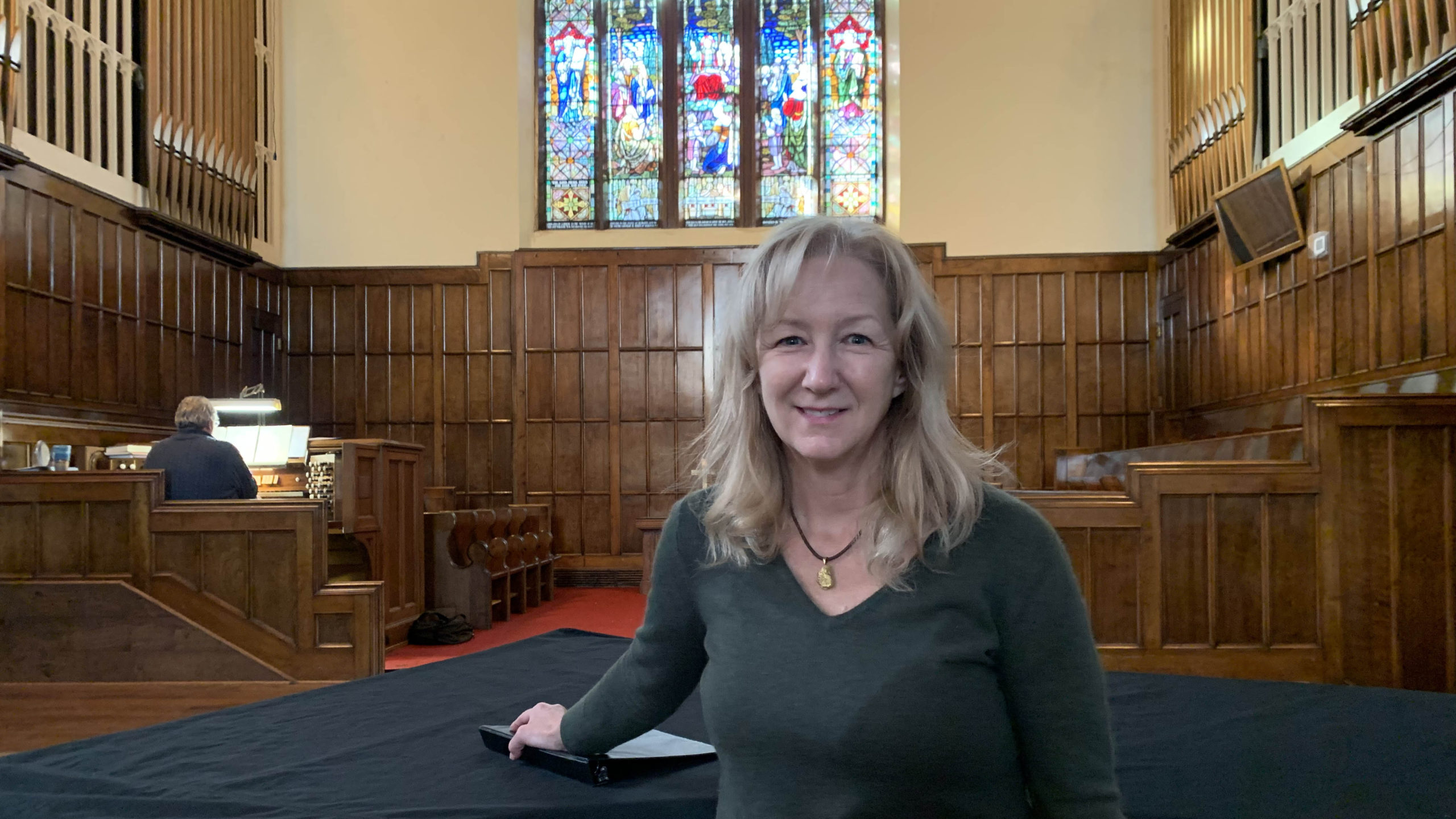
caption
Rev. Susan Chisholm at the altar of her church on Nov. 17. In the far left, Kevin Parks plays the church’s pipe organ.In an act of “reparation,” a church in Halifax will host a service on Saturday in honour of transgender people who have been murdered around the world.
“The Christian church at large has been indifferent, or hostile, towards transgender people for much of the modern period,” Tamsin Michael Robson said.
“Christianity has been so wrapped up in these toxic streams of transphobia and homophobia. But it doesn’t have to be that way. I believe there is an inherent divinity to the transgender experience.”
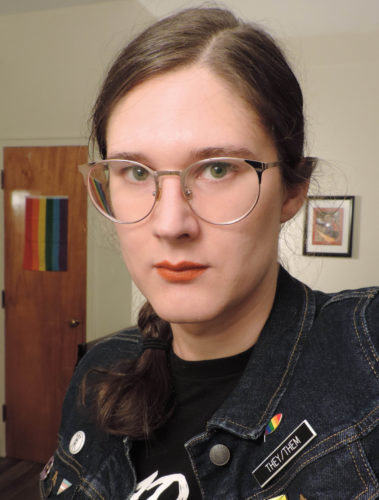
caption
Tamsin Michael Robson has developed a church service commemorating victims of trans violence.Robson is a non-binary, trans-feminine, genderqueer theologist who will lead the service on Saturday. Robson, who uses they/them pronouns, created this service while studying at the Atlantic School of Theology (AST). Related stories
Transgender Day of Remembrance (TDoR) originated in 1999 when a Black transgender woman, Rita Hester, was murdered in Massachusetts. Since then, it has been observed in various cities, with Halifax being one of them. Now, Nov. 20 serves as a day to remember transgender people killed in transphobic attacks.
Rev. Susan Chisholm runs St. Andrew’s Church, where the service will take place. Her church has a history of being inclusive to various types of queer people, as it has officiated same-sex weddings, and has supported Pride Week events. But this is the first time they have held an event exclusively dedicated to healing transgender violence.
“Transgender violence breaks my heart,” Chisholm said. “That people have been hurt and derided for who they are, when they are beautiful beloved children of God, it breaks my heart. A day of remembrance is like that. I will treat it as a day to think on violence, but also a day to lament the transgender lives we have lost.”
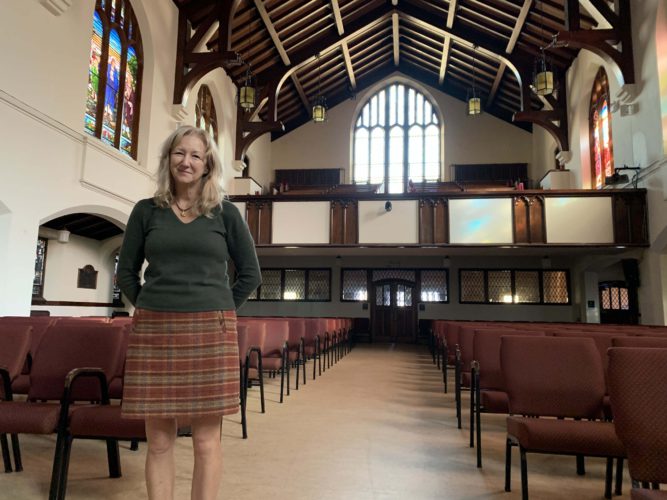
caption
Rev. Susan Chisholm stands in her church, where the event will take place on Nov. 20.According to Statistics Canada, transgender people in Canada are three times more likely to experience violence than cisgender people. As a trans person in Halifax, Robson speaks from personal experience.
Robson said that while the United Church of Canada has been at the forefront of queer inclusivity, most of their progress happens at the administrative level. That’s when Robson felt the need to step in.
“I created this service for the Transgender Day of Remembrance as both an observance piece and an educational piece,” Robson said. “I was the only trans person at AST and I wanted to share a day that was very, very close to my heart.”
Robson’s efforts gradually paid off. In 2017 the service for TDoR started at school; in 2019 it was present in various, smaller spaces. Now, it will be heard at St. Andrew’s Church.
“I approached St. Andrew’s Church and said, ‘Hey, I’m thinking of doing my Trans Day of Remembrance service from two years ago,’” Robson said. “And Susan said, ‘yes, absolutely.’”
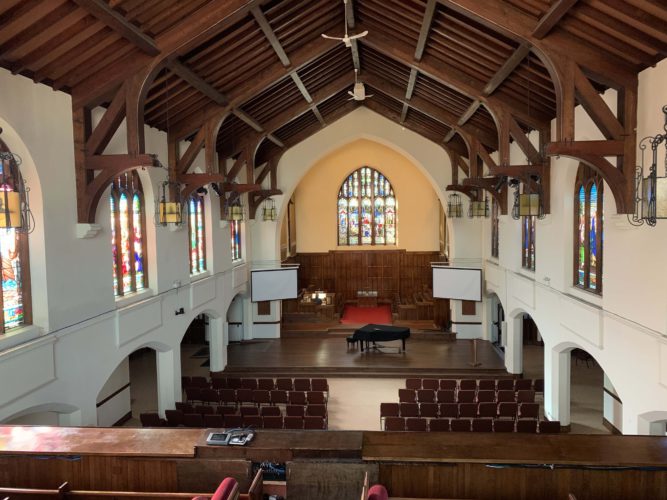
caption
An inside view of St. Andrews Church, where the service will take place.Chisholm said she believes the church needs to do reparations when it comes to healing homophobia and transphobia.
“In terms of transgender violence, it is important to make reparations in order to be commemorating, celebrating and lamenting people who are no longer with us,” Chisholm said.
“We cannot sit here and say we are inclusive, and just feel we are inclusive in our hearts,” Chisholm said. “We must do more than that. We must be intentional, explicit, and public.”
Chisholm explained the church needs to correct wrongdoing done in the past by other religious institutions, and needs to do so loudly.
“Public means loud,” Chisholm said. “It is not OK to just sit as transgender violence happens, or to be homophobic. It is not OK.
“You can’t just say, ‘this is an inclusive church,’ and then put it on a sign outside. You have to really think, ‘What does inclusivity mean?’ and then you have to be explicit and loud about that. It’s not just about feeling. It’s about actions.”
Chisholm said there has been nothing but support from church members, but Robson expects some minor pushback, though not exactly from church members.
“I haven’t really gotten this yet, but I feel there may be some controversy in the queer and trans community about this, because it is a religious service,” Robson said.
“It may be seen as an event that is closing out trans people who have been mistreated by Christianity, but that is not the intention at all. The intention is to heal the rift between trans people and a faith that has misunderstood them.”
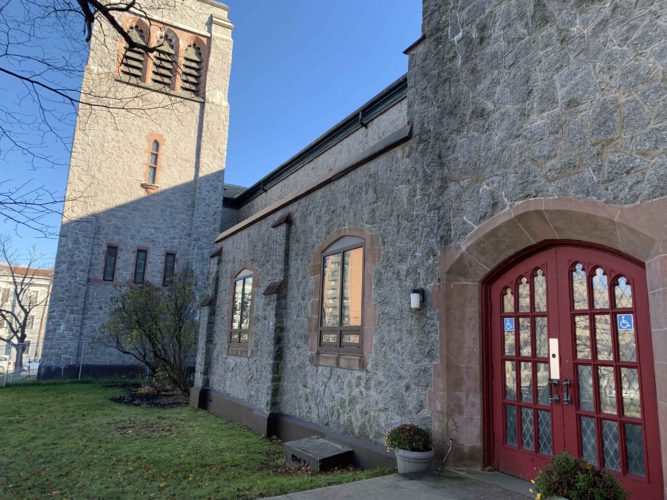
caption
St. Andrews Church is located at the corner of Robie Street and Coburg Road.Both Chisholm and Robson will be present at the event, with Robson leading the sermon.
The service starts at 7 p.m., with music and poetry written by trans woman Cory Annett.
About the author

Abel Rangel
Abel Rangel is a screenwriter and journalist working and living in Halifax, N.S. He earned a master’s degree in transgender studies at New...
